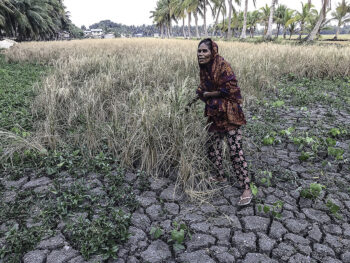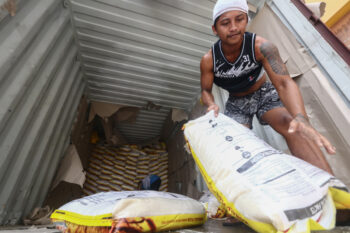There are a number of reasons to wonder if an agreement will be arrived at any time soon. First, there is the concern that any current and future agreements with the MILF will significantly impact previous agreements with the MNLF. Second, issues like “ancestral domain” or the “Bangsamoro Juridical Entity” are very hard to resolve even with the best political will in the world. And finally, perceptions of political uncertainties may cause parties on both sides to defer decisions until after the currently scheduled elections in May 2007 to gauge the political strength of the current administration in Manila.
Maintaining some forward momentum – without really reaching a final destination – is not all bad. Despite occasional outbreaks, violence has dramatically decreased. There are many mechanisms on the ground – the International Monitoring Teams, the Local Monitoring Teams, the nongovernmental Bantay Ceasefire – helping to protect the cessation of hostilities. And relative peace means that development projects have some chance of moving forward, funding for which could come from the recently-announced increased amounts of the regional government of the Autonomous Region in Muslim Mindanao or increased flows of assistance from overseas donors supporting peace and development.
Still, real breakthroughs are necessary for lasting peace. One particular sort of initiative requiring more effort is to reach out to stakeholders in Mindanao other than those directly involved in the peace process. Cities outside of ARMM, but possibly falling within the “ancestral domain of the Bangsamoro,” have expressed apprehension and, occasionally, outright rejection of coverage within the Bangsamoro Juridical Entity (BJE). Of course, the coverage of “ancestral domain” and the nature of the BJE have yet to be finalized, but as early as now it is important to include such interests and concerns in the design of a peace agreement.
For instance, it is perfectly rational for a city government to object to any removal of barangays from its jurisdiction since the Internal Revenue Allotment (IRA) from the national government depends on territorial coverage and population size. Taking away barangays would reduce the IRA for that city. In response, the peace deal could include a provision (implemented for the first five years) allowing cities and municipalities that had barangays transferred to the BJE to continue receiving the same level of funding from the national government as they would have received under calculations for the Internal Revenue Allotment (including the “lost” barangays). In this manner, the residents of the city would also be “winners” from a peace deal since the same level of funding would cover less territory and fewer people. Certainly this is a win-win solution.
We cannot say now whether this suggested provision is workable or makes sense in the context of an overall peace agreement, but the suggestion is offered as an example of the kinds of “out of the box” thinking that would allow all residents of Mindanao to feel that they are winners in any peace agreement. Another example might be the greater involvement of businesses (Chambers of Commerce, both ARMM and outside of ARMM, the Muslim Business Form, etc) since the private sector of all communities has a strong interest in peaceful pursuit of commerce.
The more people in Mindanao who feel they have “won” in a peace agreement, the more likely the agreement will be fully implemented. Hopefully, 10 years after the next agreement we won’t have the same level of controversy as we do now, 10 years after the 1996 Final Peace Agreement. (MindaViews is the opinion section of MindaNews. Steven Rood, PhD is the country representative of The Asia Foundation and regional advisor on local governance. TAF has been supporting several programs and projects in Mindanao on peace and governance).






